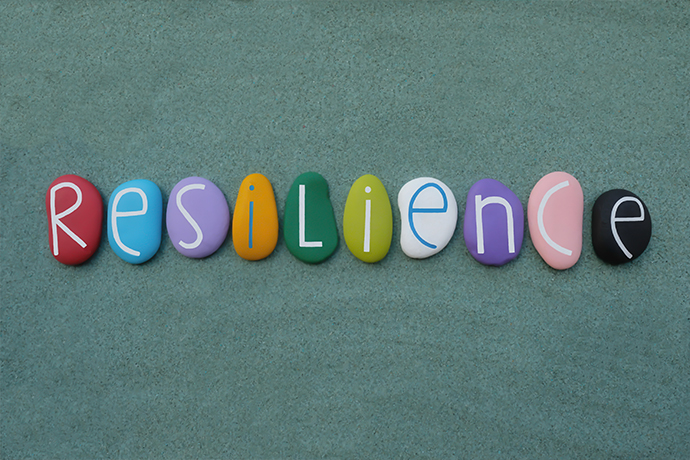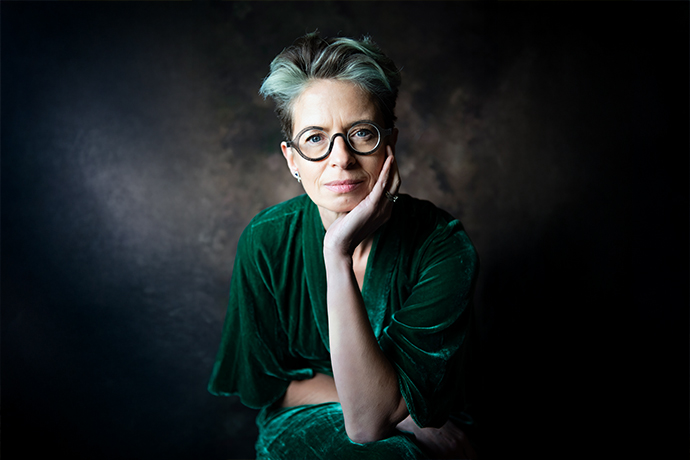 SPEAKERS
SPEAKERS
 TOPICS
TOPICS
Discover Dr. Liz O'Riordan's inspiring journey from breast surgeon to cancer patient. Learn how this renowned speaker transforms personal health challenges into powerful messages of resilience and hope for healthcare professionals and patients alike.

Life has a way of throwing curveballs when you least expect them. For Dr. Liz O'Riordan, that curveball came in the form of a breast cancer diagnosis — a disease she'd spent years treating in others as a consultant breast surgeon.
The irony wasn't lost on her. One day she found herself on the other side of the conversation, receiving diagnoses and treatment plans. Next, she was sitting in a hospital gown, hearing words that would forever change her perspective on medicine, resilience, and what it truly means to heal.
When the Healer Becomes the Patient
We work with many healthcare speakers, but Dr. O'Riordan's story hits differently. She didn't choose to become a patient advocate - cancer chose for her. This wasn't a career pivot or a strategic decision. It was survival, plain and simple.
Her medical background meant she understood every clinical detail of her diagnosis. She knew the statistics, the treatment protocols, and the potential outcomes. Yet none of that knowledge prepared her for the emotional rollercoaster that followed.
This dual perspective makes her an exceptional Liz O'Riordan speaker. She can decode medical jargon for patients while helping healthcare professionals understand the human impact of their clinical decisions. It's rare to find someone who genuinely walks in both worlds.
Dr. O'Riordan often talks about what she calls the three R's - reality, resilience, and renewal. These aren't fancy theories from textbooks. They're hard-won lessons from her personal journey.
Reality means facing the truth head-on. No sugar-coating, no denial, no false optimism. Cancer is scary. Treatment is tough. Some days you won't feel brave, and that's okay. She learned that pretending everything was fine actually made things worse.
Resilience isn't about being strong all the time. It's about bouncing back after you've been knocked down. For Dr. O'Riordan, this meant allowing herself to feel afraid while still showing up for treatment. It meant crying in the car park and then walking into chemotherapy with her head held high.
Renewal came gradually. Not as a complete transformation, but as small shifts in perspective. She began seeing her medical knowledge as a gift that could help other patients navigate their journeys. Her experience became a bridge between the clinical and personal sides of healthcare.

Traditional healthcare operates on clear hierarchies. Doctors at the top, patients at the bottom. Dr. O'Riordan's experience shattered these assumptions. Suddenly, she was both expert and novice, teacher and student, healer and patient.
This unique position allows her to address healthcare teams with unusual authority. When she speaks about patient experience, she's not quoting research studies. She's sharing lived reality. As a matter of fact, healthcare professionals often listen differently when they know the speaker has sat in those uncomfortable waiting rooms and felt the anxiety of scan results.
Unlike many others, Oncologist Liz's presentations often challenge medical professionals to examine their own assumptions about patient care. She asks tough questions: How do your words land on frightened ears? What does your body language communicate? Are you treating symptoms or people?
These aren't accusations — they're invitations. Dr. O'Riordan understands the pressures healthcare workers face. She's been there. And this makes her approach create space for honest reflection rather than defensive responses.

Healthcare culture often equates strength with stoicism, while emotions are seen as weakness and vulnerability as unprofessional. Dr. O'Riordan challenges this narrative head-on.
She demonstrates that acknowledging fear doesn't diminish expertise. Showing emotion doesn't undermine authority. In fact, vulnerability can strengthen connections between healthcare providers and patients. It creates trust where sterile professionalism often builds walls.
As a cancer keynote speaker, she helps healthcare teams understand that patients need human connection, not just clinical competence. They want to know their doctors see them as people, not just cases or conditions.
This message resonates particularly well with younger healthcare professionals who often struggle with the emotional demands of medical practice. Dr. O'Riordan permits them to be human while maintaining their professional responsibilities.
Resilience isn't just individual — it's systemic. Dr. O'Riordan works with healthcare organizations to build cultures that support both staff and patients through difficult experiences.
Her approach focuses on what she calls the four C's of healthcare resilience: communication, compassion, connection, and continuity. These aren't revolutionary concepts, but they're often overlooked in busy healthcare settings.
Communication means more than sharing information. It means truly listening, asking follow-up questions, and ensuring understanding. Dr. O'Riordan teaches healthcare teams to slow down and really hear what patients are saying - and what they're not saying.
Compassion goes beyond empathy. It's taking action to reduce suffering when possible. Sometimes that's adjusting treatment schedules to accommodate family events. Other times, it's simply acknowledging that waiting for test results is terrifying.
Connection happens when healthcare providers remember they're working with whole people, not just medical conditions. Dr. O'Riordan encourages teams to find small ways to see and acknowledge the person behind the patient.
Continuity ensures that care extends beyond individual appointments or hospital stays. It's about creating systems that support patients throughout their entire healthcare journey.

Healthcare professionals face unique stresses that the general public rarely understands. They make life-and-death decisions daily, work long hours under intense pressure, and carry emotional burdens that can be overwhelming.
Dr. O'Riordan's work intersects naturally with broader conversations about mental health in healthcare settings. Her experience as both healthcare provider and patient gives her unusual insight into these pressures.
She advocates for systematic changes that support healthcare workers' wellbeing, recognizing that healthier teams provide better patient care. This isn't just common sense - it's backed by research showing clear connections between staff wellbeing and patient outcomes.
Organizations interested in comprehensive approaches to healthcare worker support can explore additional resources through our mental health speakers program.
The best healthcare improvements start with real stories. Dr. O'Riordan's experience helps healthcare teams look at how they work and find ways to do better.
Her talks give healthcare workers practical tools they can use right away. She helps them communicate better with patients and support each other through tough times. She wants healthcare systems that take care of both patients and the people treating them.
Healthcare organizations seeking to book Dr. O'Riordan for their next event can find detailed information about her speaking topics and availability at her speaker profile.
Her work as a resilience speaker healthcare professional continues evolving as she helps more organizations navigate the complex intersection of clinical excellence and human care.
Dr. O'Riordan's story isn't finished. Her cancer journey continues, with all its uncertainties and challenges. But she's transformed that ongoing experience into a mission: helping healthcare teams provide better care by understanding both sides of the healthcare relationship.
Her message resonates because it's authentic. She's not preaching from theory but sharing from experience. Healthcare professionals recognize this authenticity and respond to it in ways that create meaningful, lasting change in how they approach their work.
The path forward requires courage - courage to be vulnerable, to acknowledge uncertainty, and to prioritize human connection alongside clinical excellence. Dr. O'Riordan shows healthcare teams that this courage isn't just possible but essential for truly effective healthcare.